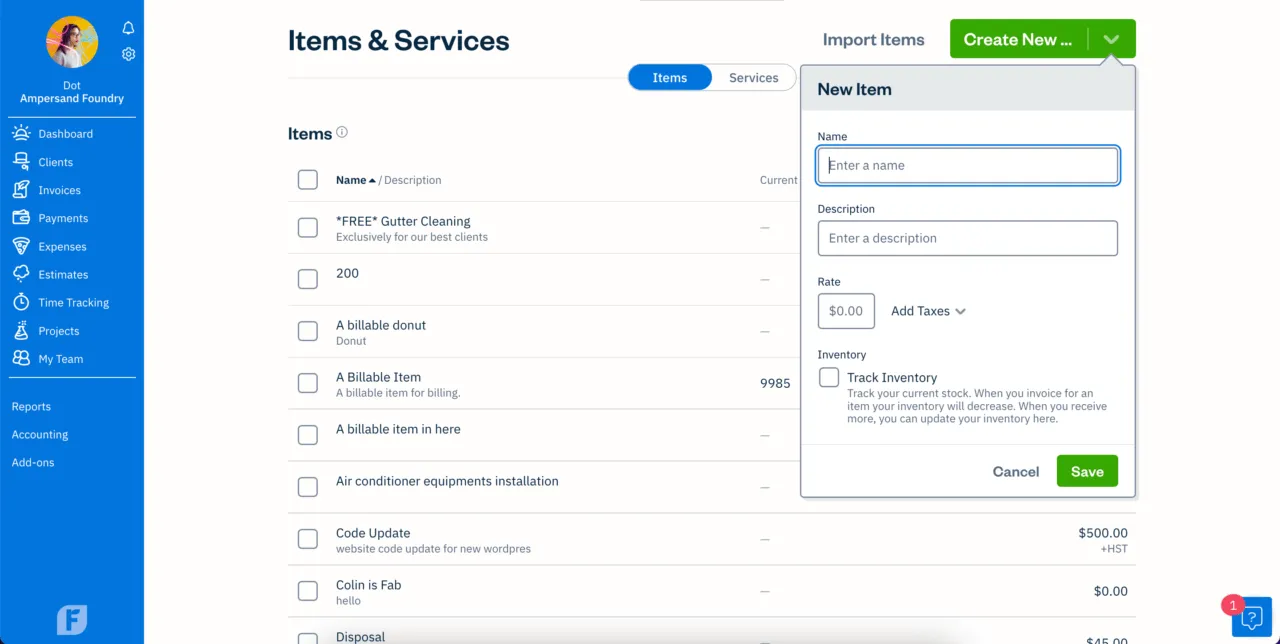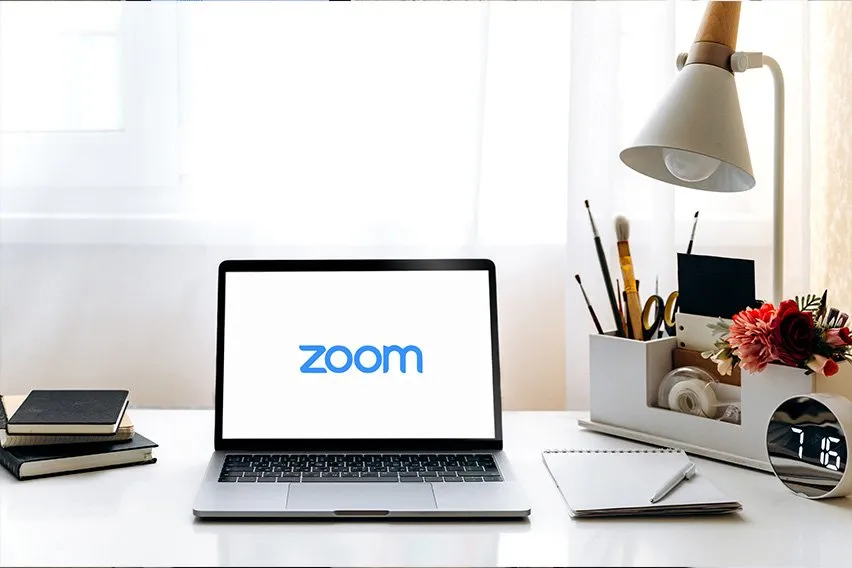8 Best Inventory Management Software for Small Businesses

Inventory management software is the backbone of the most powerful inventory management systems. And there are thousands of options out there for you to choose from.
So how do you find the best inventory management software for your business?
Inventory management software is usually made with specific niches in mind. This means the best inventory management software for your business depends on your unique business needs.
The best inventory management software will streamline everyday operations and give you valuable insight. A robust inventory management system will do this while ensuring you’re not paying extra for functionality your business doesn’t need.
To help you choose the right software for managing inventory, we’ll introduce you to the 8 best inventory management software choices, plus a detailed analysis of each product’s advanced inventory features.
Key Takeaways
- Implementing inventory management software improves your tracking and stocking capabilities, giving you control of the speed at which your company scales.
- Look for an inventory management system with features you need to use in the future that can be added to your services as you scale.
- The more often inventory and accounting software is mentioned in various places, the more likely it is to be great for inventory management.
- Look for an inventory management system that offers a free trial.
- When networking with other small business owners, ask what inventory management system they’re using and how they found the best software for their needs.
Table of Contents
- FreshBooks
- Zoho Inventory
- Veeqo
- Sortly
- Brightpearl
- InFlow Inventory
- Netsuite
- Cin7
- Questions to Ask When Buying Inventory Management Software
- Choosing the Best Inventory Management Software
- Frequently Asked Questions
1. FreshBooks
Although known for being an accounting software and system, FreshBooks also offers simple inventory tracking for freelancers and small businesses with fundamental needs.
Whether you sell only a handful of different items or want to start selling physical items on top of your service business, managing even small amounts of inventory takes effort. Especially if you sell across multiple sales channels or multiple locations.
FreshBooks is the right inventory management software for tracking inventory if you also use it for accounting purposes.
FreshBooks is the best inventory software for those looking to experience the power of inventory software for the first time. It’s also a good solution for those still wondering if inventory management software is for them. Click here to start your free trial today.

2. Zoho Inventory
Zoho Inventory is a popular small business pick for businesses with multi-channel selling needs. It supports integration with popular platforms, including Shopify and Amazon. This allows you to sync data across sales channels to manage stock levels and inventory costs more easily.
The Zoho Inventory platform also has basic inventory management software features. This makes it an excellent pick for small businesses with simple inventory needs.
Basic Zoho inventory management software features include:
- Inventory control software: Zoho Inventory control software allows companies with multi-channel selling needs to sync inventory quantities across sales channels. It also allows you to set up re-order points for automatic re-ordering to maintain optimized inventory levels.
- Warehouse management: Warehouse features allow you to check stock levels, manage warehouse items across 2+ warehouses, and fulfill orders more efficiently by dispatching customer orders from the warehouse closest to the customer.
- Order management Software: Order management allows you to manage customer orders easily. This feature automates aspects of order fulfillment, like converting purchase orders into invoices.
- Analytics and reporting: This feature enables data-driven decisions to meet customer demand. Zoho Inventory offers very basic reporting capabilities compared to other options.
- Barcode scanning capabilities: Barcode scanning helps drive efficiency in perpetual inventory management systems. It helps keep track of inventory as it comes and goes in real-time.
Another notable Zoho Inventory management feature includes end-to-end inventory tracking. This functionality allows you to track inventory items through features like serial numbers.
Although the Zoho Inventory management software solution is affordable, it doesn’t offer the most customizable inventory management solution. Its forecasting and reporting capabilities are also limited compared to many other options.
Zoho Inventory Price:
Zoho inventory management system offers a free, robust option for those looking to get started. It also offers a 14-day free trial for its other plans, which start at $59 per month when billed annually.
Verdict:
Suitable for small businesses, but businesses looking to scale will eventually outgrow it.
3. Veeqo
Veeqo is another popular inventory management solution for retail or wholesale businesses with multi-channel selling needs. The inventory management software advertises itself as an inventory management and shipping platform.
Like Zoho Inventory, it has a simple and intuitive platform that combines each sales channel into a centralized place so that you can easily keep track of and manage everything. It also provides features for order management, inventory management control, analytics and reporting, and warehouse inventory management.
A unique feature about Veeqo is that they have their own barcode scanner, accelerating the processing of high volumes of orders. It also speeds up the process of stock counts.
The platform has a reputation for providing a fantastic shipping experience. Its shipping integrations include over 15 major shipping carriers like UPS and FedEx. The platform also offers shipping features like discounted shipping rates and live tracking.
Although the onboarding process can be time-consuming, everything works smoothly once you’re all set. This makes it the best inventory management software if you’re looking for something scalable and customizable but not if you’re looking to get started quickly.
Veeqo Price:
Veeqo doesn’t offer a free account but does offer a 14-day free trial. Pricing for their cheapest plan, which processes less than 500 monthly orders, starts at $156 per month when billed annually.
The Veeqo scanner hardware is sold separately for a one-off payment of $495.
Verdict:
Veeqo is great for a small retail business looking for a scalable but budget-friendly inventory solution to get started.
4. Sortly
Sortly is one of the best inventory management software for small non-retail businesses. It’s a good pick for businesses looking for a quick and easy solution for their inventory and asset management needs. Its visual nature appeals to those who dislike reading words on spreadsheets.
Its super intuitive functionality allows your team to learn how to track important details about your items quickly. This means you won’t need extensive training on the product either. Sortly has most of the basic inventory management software features like warehouse management, inventory management control, barcode scanning abilities, and basic inventory reports.
The platform allows you to scan QR codes through the app, receive stock alerts to keep track of stock levels and returns, and group items easily.
With Sortly, there are a few things you’ll have to be mindful of. You can’t integrate with other apps and inventory software unless you’re on the ultra plan. Also, it doesn’t yet integrate with eCommerce or accounting software. Lastly, you’ll need to contact support to execute integrations via API, even if you’re on the ultra plan.
Sortly Price:
Sortly offers a free version, or you can get started with a free trial of their advanced or ultra version.
Verdict:
Sortly is a great budget option with very simple-to-use features for non-retail small businesses in various industries.
5. Brightpearl
Brightpearl is a retail management system and inventory management system explicitly built for multi-channel retail businesses or wholesalers. The platform helps companies to streamline their inventory management system operations. It has all the basic inventory management features in its more expensive plan. However, the cheaper plan for businesses with fewer than 1500 orders per month is much more limited.
One great thing about Brightpearl is that it’s built specifically for higher transaction volumes. Brightpearl is an excellent alternative for users migrating away from Stitch Labs. Stitch Labs was bought by Square and they have ended their operations in Spring 2022.
Although it’s good that Brightpearl is constantly updating the inventory management software, this often comes at the price of having to deal with inventory software bugs.
Brightpearl Price:
Brightpearl doesn’t offer a free option or trial. You need to contact them for a pricing quote.
Verdict:
Brightpearl is a popular option for merchants trading over $1 million or planning to within the following year. Not a good choice for retail businesses just starting out.
6. InFlow Inventory
InFlow Inventory management software is a popular inventory software pick for small businesses on a budget. InFlow combines inventory management and order-tracking software to streamline inventory tracking.
Like Zoho Inventory, Veeqo, and Brightpearl, it also is made for retail businesses with multi-channel selling needs. A unique feature of inFlow Inventory is its built-in B2B portal.
InFlow has the basic inventory management software features of inventory control software, barcode scanning abilities, manufacturing inventory, warehouse management, and reporting.
InFlow Inventory also connects with over 3,000 apps with the help of Zapier. Unfortunately, most integrations are only through API. APIs may require a developer for seamless integrations between inventory management software and apps.
Unlike some of the other inventory management software on our list today, inFlow is not QR code friendly and doesn’t offer a free version.
InFlow Inventory Price
InFlow Inventory offers a 14-day free trial but no free plans. Plans start at $71 per month.
Verdict:
InFlow is a good budget option for B2B wholesalers and distributors.
7. Netsuite
Netsuite, owned by Oracle, is the best inventory management software for manufacturing companies or companies with large manufacturing needs.
The platform offers a complete set of basic inventory management software features plus purchasing capabilities to streamline manufacturing and supply chain processes.
The inventory management software is very customizable and provides advanced features. Some of its advanced features include demand planning, cycle counts, and very detailed product catalogs. Still, you’ll likely need the help of developers to take advantage of all of its functionality. It’ll take time to set up the platform’s inventory system, but it’ll be well worth it.
One thing to note is that it’s not ideal for businesses with high retail functionality needs. The other inventory management software on this list made for retail companies is a better option.
Netsuite Price:
The platform offers no free trial or free accounts. You have to contact them for a custom quote. The software’s pricing starts at $999 per month.
Verdict:
Netsuite is best for businesses with more complex needs and a higher budget because it’s not the cheapest option on the list.
8. Cin7
Cin7’s unique spin is that it’s an inventory management software and a point-of-sale system. This allows businesses to further streamline stock management across sales channels to prevent stock-out. This is helpful for businesses with both online and physical stores.
The platform advertises itself as a comprehensive solution for many businesses, including retailers, wholesalers, and those with simple manufacturing needs. Cin7 is another great alternative besides Brightpearl for previous Stitch Labs customers.
On top of having all the other standard features of cheaper inventory management software, it has a lot more features and functionality.
Cin7 Highlights:
- Advanced reporting: You’ll have access to over 100 customizable reports. It also includes demand planning and forecasting features. That’ll give you access to actionable data to make better decisions around inventory.
- Known for its many integrations (550+): Cin7 has many integrations across eCommerce, accounting, and more. This feature makes it easy to take your business to the next level as it grows.
- Affordable enterprise resource planning (ERP): ERPs usually charge a higher price for additional features. Cin7 took a different approach. They include lots of built-in functionality at no extra cost.
- Fully-integrated point-of-sale system: Cin7’s point-of-sale allows you to do a lot more than just process transactions on their point-of-sale system. Their point-of-sale system also allows you to track inventory, ship orders, and more.
- Mobile point-of-sale: Cin7’s point-of-sale module can be run on a mobile device and take offline orders.
Cin7 Price:
Cin7 has a small business plan which starts at $299 per month, making it one of the options with the highest price on this list. When it comes to ERP software, it’s considered to have a budget-friendly price.
Verdict:
Cin7 is best for larger businesses or fast-growing smaller stores with complex needs. It’s also worth the investment if you have pop-up shops or trade shows.
Questions to Ask When Buying Inventory Management Software
There are some things you should know before committing to any inventory management software to avoid any surprises.
Here are some questions you should consider asking support staff as you shop for the best inventory management software:
- Can you manage more than one warehouse with your plan?
- Can you centralize all or most of your data with this inventory software?
- Can this inventory system scale as your business grows, and to what extent?
- How many user licenses does the subscription offer?
- Is importing or exporting data to and from this inventory software easy?
- Does this inventory software integrate with all the main other inventory software you use, like accounting?
- How long does onboarding take?
- Does the inventory software work across more than one type of device?
- Can you see some case studies of clients in your niche?
- How long would training an employee new to the inventory software take?
- What exactly does the price include? And what are common add-ons that will add to the price quoted?
- What hardware would you likely have to buy separately?
Choosing the Best Inventory Management Software
There are key features to look for in the best inventory management software for your business and inventory management applications that can make or break your system. Inventory management is the process a business uses to track goods and materials as they travel to and from the company’s warehouses and retail locations.
The best inventory management software for large businesses or inventory management software for small business helps you track the number of products in your warehouses and in your store and automatically replenishes items as needed. The most important things to look for in your inventory management systems are as follows:
- Easy-to-use features that integrate with your current technology and inventory systems. This can include barcode scanning, SKU number tracking, and retail label generation.
- The aesthetic is an often overlooked inventory software attribute. However, choosing inventory software designed in a way that’s easy for you to follow and learn and that you enjoy using increases the chances of sticking with a regimented inventory tracking plan.
- Order management capabilities that allow you to customize control over automatic order renewals keep you in charge of the inventory flow while removing the tracking of fast-moving inventory from your plate.
- Integration with billing management software that tracks individual items from the initial order to inventory to invoice and payment.
- The ability to provide fully detailed reporting on the areas that matter most to the maintenance and scaling of your business.
Already using FreshBooks manufacturing accounting software and have simple needs for tracking inventory? check out how you can do it in FreshBooks.
FAQs on Inventory Management Software For Small Businesses
What is the first rule of inventory management?
The first and most important rule of inventory management is maintaining the right amount of inventory. You need to have enough inventory to service demand. Managing the amount of inventory you have in relation to how much product you foresee moving is crucial to rapid and manageable growth.
Which inventory method gives the highest profit?
FIFO, the First In, First Out inventory management method, generally results in the lowest estimated cost of goods sold and the highest net income. However, different inventory methods might be used by different industries, especially industries where the inventory purchase prices fluctuate often.
What is the most commonly used inventory system?
Periodic inventory accounting is the most commonly used inventory management system. The periodic inventory accounting is better suited to small businesses with easy-to-manage inventories or those with lower sale volumes.
How do small businesses keep track of everything?
There are many different approaches to keeping track of your small business’s finances and inventory and creating a lasting warehouse management solution. The best advice across the board is to open separate business banking accounts, store receipts properly, make spreadsheets that are updated daily, and integrate smart inventory software solutions into your business practices early on.
What are the benefits of using inventory management software for small businesses?
It has numerous benefits for small businesses, including improved inventory tracking, increased efficiency, reduced operational costs, better customer service, and enhanced decision-making capabilities. Also, businesses can optimize their operations and make informed decisions that drive growth and profitability.
More Resources on Small Business Accounting
Reviewed by
Jami Gong is a Chartered Professional Account and Financial System Consultant. She holds a Masters Degree in Professional Accounting from the University of New South Wales. Her areas of expertise include accounting system and enterprise resource planning implementations, as well as accounting business process improvement and workflow design. Jami has collaborated with clients large and small in the technology, financial, and post-secondary fields.
RELATED ARTICLES




 Inventory Management System – Complete Guide
Inventory Management System – Complete Guide What is ERP (Enterprise Resource Planning)?
What is ERP (Enterprise Resource Planning)? Essential Tools to Help You Work Remotely
Essential Tools to Help You Work Remotely What You Didn't Plan for When Switching to Remote Work
What You Didn't Plan for When Switching to Remote Work The Importance of Budgeting As a Freelancer: Five Essential Tips
The Importance of Budgeting As a Freelancer: Five Essential Tips